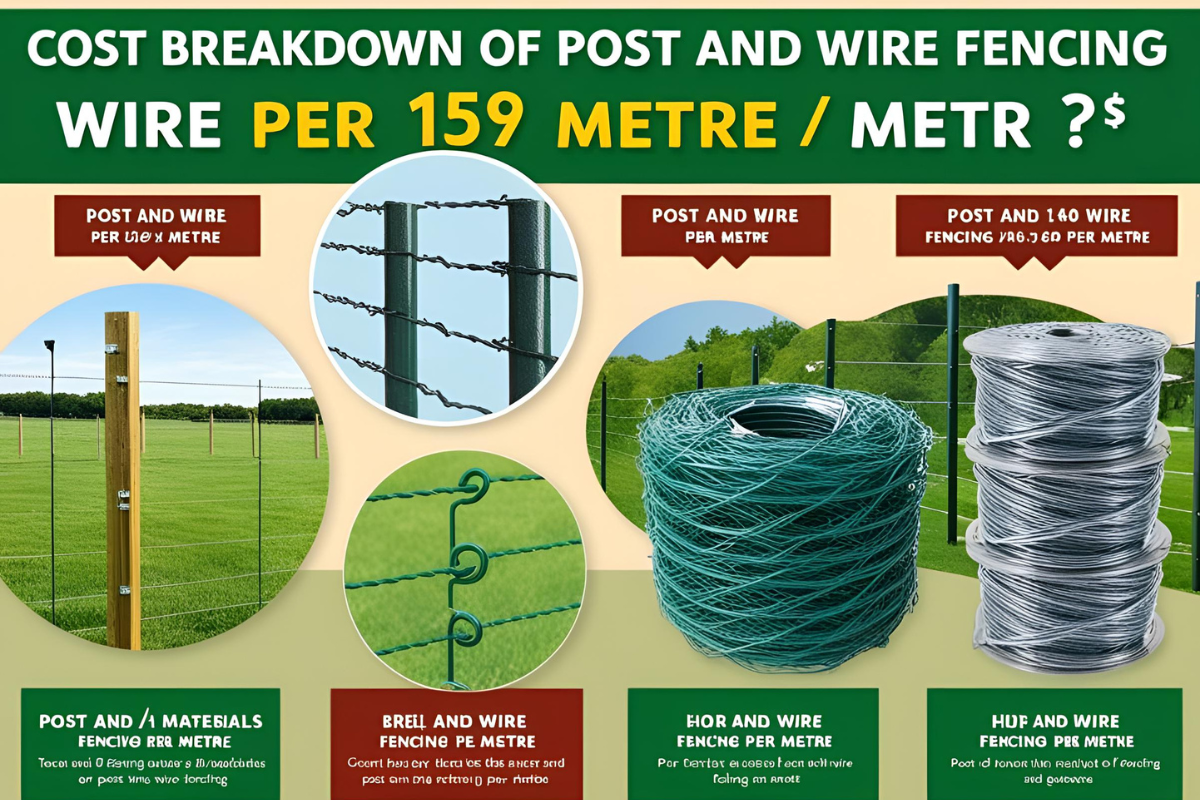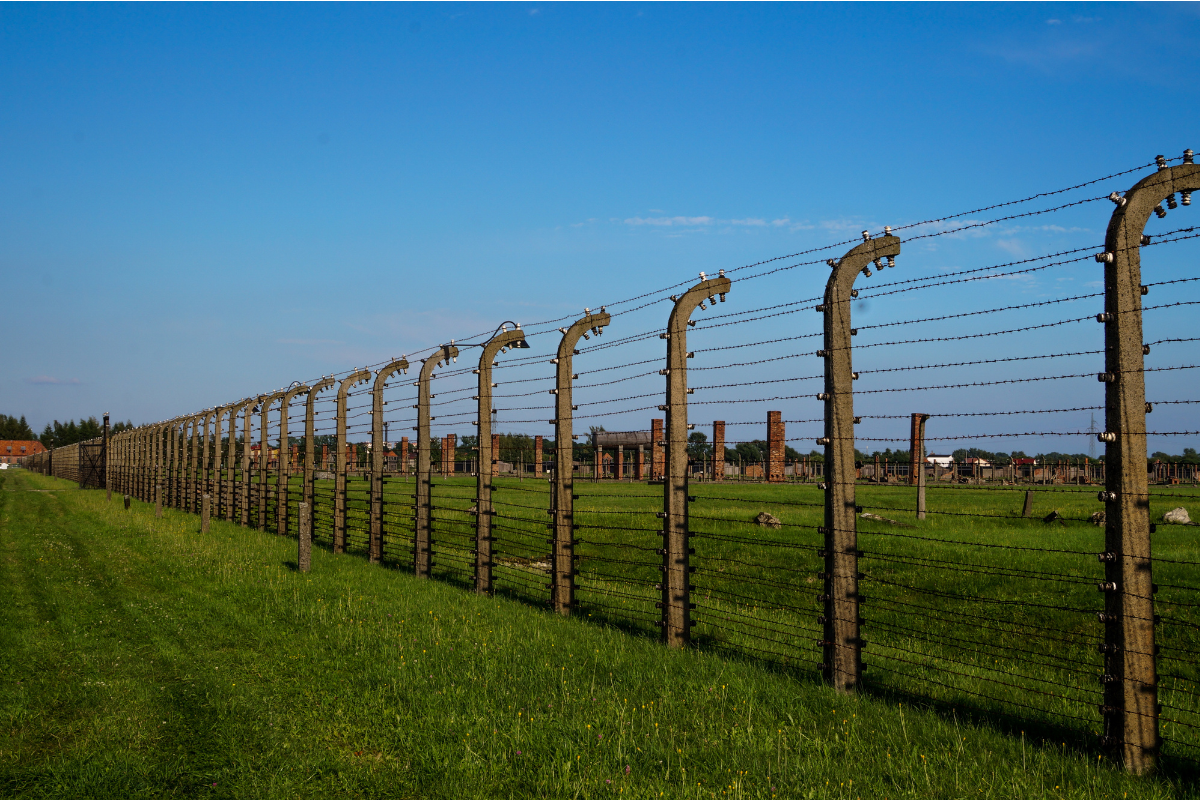When thinking about affordable and practical fencing solutions for rural properties, post and wire fencing stands out as a top choice. Whether you’re managing livestock, securing agricultural land, or setting clear boundaries, this type of fencing is a go-to option for its durability and cost-effectiveness.
This guide dives into the cost of post and wire fencing in Australia for 2025, compares its pricing with other fencing types, and explores the key factors affecting installation costs, so you can make an informed decision.
What is Post and Wire Fencing?
Post and wire fencing is a simple yet effective solution consisting of vertical posts (usually made of treated timber or steel) connected by horizontal strands of wire or wire mesh. Its adaptability and low cost make it especially popular in rural areas where large-scale fencing is required.
Key Benefits of Post and Wire Fencing
- Cost-Effective: Affordable compared to other fencing types.
- Practical: Ideal for farms and livestock management.
- Adaptable: Suitable for uneven terrains and varying property sizes.
- Durable: With the right materials, it offers longevity with minimal maintenance.
Typical Cost of Post and Wire Fencing in 2025
The cost of post and wire fencing depends on the materials used, the terrain, and whether you handle installation yourself or hire professionals. Here’s a breakdown of the costs you can expect in 2025.
| Component | Cost Per Meter (AUD) |
| Wire (basic/plain or barbed) | $7 |
| Wire mesh fencing | $7–$12 |
| Timber posts | $7–$10 |
| Complete fencing (installed) | $18–$25 |
Key Takeaways from Pricing Breakdown
- A basic DIY fence (posts + wire) starts at approximately $14 per meter.
- Professionally installed fencing averages between $18 and $25 per meter on flat terrain. More complex landscapes can drive up costs.
How Does Post and Wire Fencing Compare to Other Types in Australia?
When it comes to affordability, post and wire fencing is leagues ahead of decorative or urban fencing. Here’s how it matches up against other popular fencing options:
| Fencing Type | Cost Per Meter (AUD) |
| Treated pine fencing | $75–$120 |
| Colorbond fencing | $85–$140 |
| Wrought iron fencing | $450–$600 |
| Brick fencing | $550–$800 |
Clearly, for large-scale fencing in rural areas, post and wire fencing is the most budget-friendly choice.
Factors That Affect Post and Wire Fencing Costs
Several factors can influence the final cost of your fencing project. Understanding these can help you budget effectively and avoid surprises.
1. Type and Quality of Materials
- Upgrading to galvanized or barbed wire boosts durability by resisting rust and wear, making it ideal for long-term use in harsh environments. However, this added durability comes with higher upfront costs that may not be necessary for all fencing purposes.
- Using treated timber or steel posts ensures the fence withstands harsh weather over time, preventing rot, warping, or corrosion. Treated timber is a cost-effective choice for most conditions, while steel posts are more durable but significantly more expensive.
2. Terrain and Installation Complexity
- Flat terrain lowers labor and material costs as it requires minimal preparation, making it easier and quicker to install fences.
- Rocky or uneven ground, however, demands extra prep work, specialized equipment, and additional labor hours. This can significantly increase both time and costs, especially if excavation or leveling is required.
3. Fence Height and Length
- Taller fences require more materials for stability, including additional posts, reinforcements, and concrete footings, which can raise costs. Taller fences are commonly used for security or livestock containment.
- Longer fences naturally cost more due to the increased material and labor needed, but larger projects may qualify for material bulk discounts or contractor package rates, which can help lower the overall price.
4. Labor Costs
- Professional fencing contractors usually charge $22 to $50 per hour, depending on their expertise and location, or they may offer per-meter rates for installations. Complex projects or custom designs can drive these rates higher.
- Add-ons like gates or electrification of the fence significantly increase labor costs due to the additional time and skill required for proper installation.
5. Additional Features
- Adding a gate can cost anywhere from $300 to $1,500, depending on its size, material, and type (manual or automated). Gates designed for heavy traffic or increased security may cost more.
- Electric fencing improves functionality, especially for livestock control, as it adds a reliable layer of protection. However, installing and maintaining electric fences entails higher initial and ongoing costs, including electricity usage and repairs.

Why Post and Wire Fencing is Ideal for Rural Properties
Beyond affordability, post and wire fencing has multiple advantages that make it the perfect solution for rural and agricultural needs.
- Scalability: Easily scalable to cover large properties, making it an ideal choice for farms, ranches, or expansive rural properties. It provides a cost-effective solution compared to more decorative alternatives like wooden or vinyl fencing.
- Livestock Management: Specifically designed for managing and containing livestock such as cattle, sheep, and horses, ensuring their safety and preventing escapes. It’s also flexible enough to adapt to different animal needs or property layouts.
- Low Maintenance: Requires minimal upkeep, with simple repairs that can be done without the need for professional assistance, saving time and money in the long run.
- Longevity: When built with quality materials and given proper care, this fencing can endure harsh weather and wear, lasting for decades while maintaining reliability and durability.
Practical Tips for Successful Post and Wire Fencing
- Choose Quality Materials
Use treated timber or galvanized steel posts to ensure your fence can withstand weather damage and last longer. For the fencing itself, choose high-quality wire or mesh based on your needs—plain wire works well for defining boundaries, while barbed wire is ideal for containing livestock and adding extra security.
- Hire Reliable Contractors
For a professional and durable installation, hire licensed, experienced contractors who specialize in fencing. Take the time to research reviews, ask for references, and compare quotes to ensure you’re getting the best service and value for your money. A skilled contractor will also provide advice on materials and the best design for your property.
- Do Regular Maintenance
Inspect your fence regularly for any signs of damage, such as rusted wires, broken mesh, or loose, leaning posts. Address small issues promptly to prevent them from developing into bigger, more costly problems. Regular cleaning can also help maintain the fence’s appearance and durability, especially for metal or painted wood materials.
- Customize to Your Needs
Tailor your fence to meet your specific requirements. For example, add access gates for convenience, or consider electrification if you’re containing livestock that may test the boundaries. Discuss these needs in detail with your contractor before starting the project to ensure the fence is designed and installed to meet your expectations.
Post and Wire Fencing Offers Practicality and Value
For rural and agricultural properties, post and wire fencing is unmatched in terms of affordability, scalability, and practicality. With costs averaging between $18 and $25 per meter installed, it’s an excellent choice for securing large areas without stretching budgets.
Whether you’re building a fence to protect livestock or define property boundaries, planning ahead and partnering with the right professionals can ensure a durable and functional fencing solution.
FAQ
1. What is post and wire fencing best used for?
Post and wire fencing is ideal for rural and agricultural applications, such as securing livestock, protecting crops, or marking property boundaries. Its affordability and scalability make it a practical choice for large areas.
2. How much does post and wire fencing cost?
The average cost for post and wire fencing ranges between $18 and $25 per meter installed, though the final price may vary depending on factors such as terrain, material quality, and labor costs.
3. How long does a post and wire fence last?
With proper installation and maintenance, a post and wire fence can last between 10 to 20 years. Regular inspections and repairs can help prolong its lifespan.
4. Can I install post and wire fencing myself?
While it is possible to install post and wire fencing as a DIY project, partnering with fencing professionals ensures a more durable and well-constructed solution, especially for extensive or uneven terrain.
5. What materials are typically used in post and wire fencing?
Post and wire fencing usually consists of wooden or steel posts paired with wire, such as barbed wire, woven wire, or plain wire, chosen based on specific needs like livestock containment or property demarcation.









